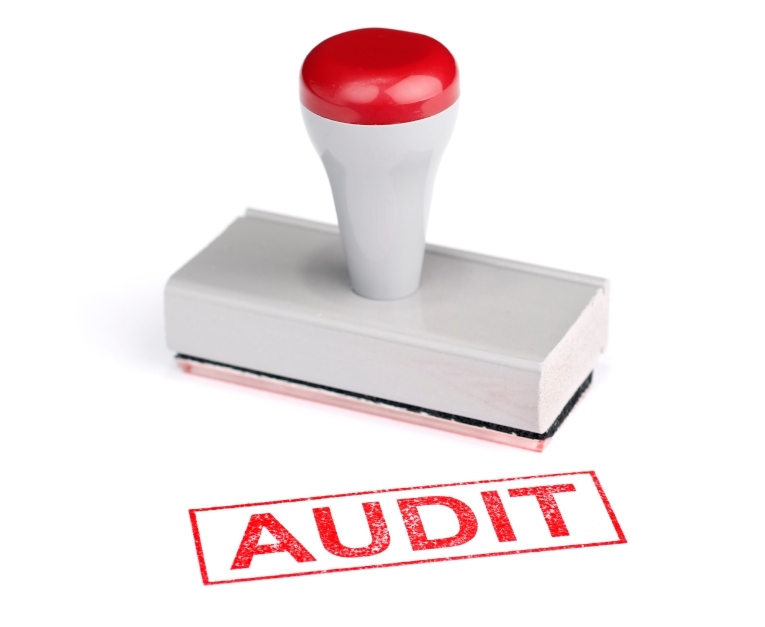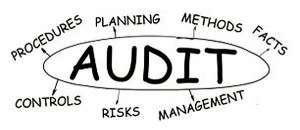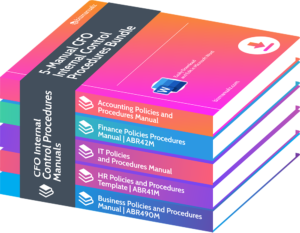What is The Purpose of an Audit?

To understand the purpose of an audit in accounting, delve into the introduction. Gain insights into the definition of an audit in accounting, the importance of audits, and an overview of the audit’s purpose. Explore the sub-sections that provide a comprehensive understanding of this crucial aspect of the accounting field. What is the purpose of an audit?
Audit Definition in Accounting
Auditing in accounting is assessing and evaluating an organization’s financial statements, records, and transactions. To guarantee accuracy, reliability, and compliance with laws, an independent auditor must do this.
Start with planning and understanding the entity’s operations, risks, and controls. Then, testing procedures must be done. This could include inquiries, observations, inspections, and reconciliations. This helps detect errors or irregularities within the financial statements.
To make audits in accounting more effective, there are some tips to follow:
- Maintain strong internal control systems, like segregating duties, implementing checks and balances, and doing periodic reviews to discover any weaknesses or potential fraud risks.
- Have regular communication between management and auditors. This allows for discussion about any notable changes in business operations or financial reporting requirements. Auditors can adjust their audit approach this way.
- Embrace technological developments. Use data analytics tools and automated systems for transaction processing. This minimizes errors and increases efficiency.
These tips foster transparency, accountability, and accuracy in financial reporting. a strong internal control system prevents misstatements or fraudulent activities from going undetected. Open communication gives auditors the info they need for a comprehensive assessment. Technology streamlines processes and lets auditors focus on areas needing human judgment.
Importance of audits in accounting
Audits are an essential part of accounting. They help detect mistakes, fraud, and non-compliance with regulations, in addition to providing an independent evaluation of a company’s financial statements – strengthening investor confidence.
Audits offer many other advantages. They assess the effectiveness of internal controls and risk management processes. This allows businesses to identify areas for improvement and develop strategies for reducing risks.
Audits are not only for public companies. They are also required for nonprofits and government organizations; to verify proper use of funds and compliance with legal requirements.
The American Institute of Certified Public Accountants (AICPA) played a major role in the history of auditing. In the early 20th century, AICPA established standards and guidelines for conducting audits professionally. Audits are now a cornerstone of accounting practices around the world, promoting financial integrity and trust.
Audits are invaluable. They ensure compliance with regulations, facilitate informed decision-making, protect stakeholders, and contribute to the stability of financial systems. As businesses become increasingly complex, audits are more important than ever for ensuring accuracy and safeguarding financial security.
Overview of the purpose of an audit
The aim of an audit? To check the accuracy and reliability of financial data. To make sure that financial summaries comply with rules and regulations. Audits give stakeholders confidence that the firm’s economic position is correctly detailed.
An audit involves a methodical review of financial paperwork, internal controls, and procedures. It helps find any errors or deceit, making sure transparency and accountability in financial reporting. Also, audits can give useful information about places where something can be upgraded to increase operational effectiveness and reduce dangers.
Furthermore, audits have an essential role in creating trust and certainty amongst investors, creditors, and other stakeholders. They assist in establishing the trustworthiness of a company’s financial summaries by examining their precision and agreement with generally accepted accounting principles.
In today’s competitive business climate, where dependability is top priority, organizations cannot ignore the significance of audits. Not conducting regular audits could lead to serious outcomes such as regulatory penalties, loss of investor trust, and harm to reputation.
So, don’t miss out on the chance to enhance your organization’s fiscal management procedures with regular audits. Take the power of audits now for a stable and prosperous future.
The Purpose of an Audit
To ensure the accuracy and reliability of financial statements, the purpose of an audit is crucial. In this section, we will explore the sub-sections: “Ensuring financial statements are accurate and reliable.”
Ensuring financial statements are accurate and reliable
An audit is massively important for verifying that financial statements are precise and reliable. Through a deep examination of the company’s financial records, an auditor can provide an independent appraisal of the financial statements’ integrity.
To better explain this, here’s a table:
| Purpose of an Audit |
|---|
| 1. Search for errors/irregularities |
| 2. Confirm accuracy of financial records |
| 3. Assess compliance with accounting standards |
| 4. Evaluate internal controls |
The audit process has some crucial steps to accomplish its purpose:
- Auditors look over financial records carefully to spot any errors or irregularities that happened during the reporting period.
- They check the accuracy of these records against supporting documents like invoices and bank statements.
- Moreover, auditors check if the company’s financial statements follow the relevant accounting standards. This evaluation guarantees that all reporting requirements are made with accuracy and consistency throughout different periods, augmenting transparency and accountability.
- Lastly, auditors review internal controls within the organization. They go over policies and procedures that protect assets, stop fraud, and promote efficient operations. By doing so, auditors can recognize any weaknesses or deficiencies that could be a threat to the company.
To perfect the audit process and ensure its success, here are some suggestions:
- Put in place rigorous checks and balances: By setting up systems that need several levels of review and approval before transactions are listed or financial statements are finished, errors or misstatements can be detected more easily.
- Better training and awareness: Offering employees complete training on accounting principles and prompting them to stay up-to-date with changes in regulations can lead to more precise record-keeping and compliance.
- Hire external auditors: Having external auditors adds an extra layer of objectivity and proficiency to appraisals. These specialists bring in fresh perspectives while guaranteeing independence from internal pressures or prejudices.
Explanation of the role of auditors in verifying financial statements
Auditors are essential for verifying financial statements. They examine the records and transactions of a business to make sure the figures are accurate and fair. By assessing independently, auditors help stakeholders trust that the company’s information is reliable. Also, they check that the company follows laws and regulations, and look for potential mistakes. Auditors are essential for keeping transparency, trustworthiness, and confidence in the financial reporting process.
Auditors do many things to carry out their objectives. They analyze financial data, evaluate internal controls, look at a sample of transactions, review documents, and get evidence through meetings and watching. This comprehensive way of working lets auditors get assurance that the financial statements are correct. In addition to the figures being correct, auditors also make sure the financial statements meet accounting standards.
Moreover, auditors are crucial for finding any fraud or misappropriation of assets in an organization. They evaluate the internal control systems which are meant to stop and detect improper behavior. If auditors identify any signals of fraud during their audit, they have to tell management or related parties.
Pro Tip: As an auditor, it’s vital to keep up with changing accounting standards, laws, and sector practices. Continuous professional growth helps you improve your auditing skills and make sure you do a good job when verifying financial statements.
Examples of how audits detect and prevent financial fraud
Audits are essential for detecting and preventing financial fraud. They give a planned and in-depth look at an organization’s financial records, finding any variations or irregularities that might point to illegal activities. Let us look at some examples of how audits do this.
| Example | Explanation |
|---|---|
| Anomaly Detection | Auditors use data analysis to identify strange patterns or transactions that don’t fit with the norm, hinting at potential fraud. |
| Internal Controls Evaluation | Audits review the efficiency of internal controls put in place by organizations to stop fraudulent activities. |
| Document Examination | Auditors examine financial documents, such as invoices and receipts, to guarantee their credibility and spot any forged or faked records. |
These are just a few examples that show the methods auditors use to find financial fraud. By analyzing data, assessing internal controls, and inspecting related paperwork, auditors help keep the truthfulness of financial systems.
It is important to remember that audits have a long history of uncovering financial misdeeds. In the notorious case of Enron Corporation, audits revealed wide-ranging accounting manipulations that led to one of the greatest corporate scandals ever. This serves as a strong warning of how audits play a huge role in guarding against deceptive practices.
In conclusion, audits serve as powerful tools in locating and stopping financial fraud. Through different techniques such as anomaly detection, assessment of internal controls, and document examination, auditors help keep transparency and faith within organizations’ financial operations. They stay important safeguards against devious practices in today’s complicated business environment.
Assessing Compliance with Laws and Regulations
To assess compliance with laws and regulations, delve into the need for audits and evaluating compliance. Explore examples of the laws and regulations that auditors assess, gaining insight into how audits ensure adherence to legal requirements.
Explanation of the need for audits to evaluate compliance
Audits are essential for evaluating compliance, due to the growing complexity of legal frameworks. They provide an objective assessment of an organization’s adherence to laws and regulations. This helps them meet their legal obligations, spot potential risks, and uphold ethical standards.
Audits are key in spotting non-compliance issues. By reviewing financial records, operations, and internal controls, auditors can pinpoint areas where the company may be falling short of legal requirements. This helps management take appropriate steps to ensure compliance.
Moreover, audits show stakeholders that an organization is abiding by the law. By doing regular audits, businesses show their commitment to transparency and accountability. This boosts the company’s reputation and trustworthiness among customers, investors, and other stakeholders.
Furthermore, audits serve as a preventive measure. By examining processes and procedures, auditors can detect violations of compliance practices and suggest actions to limit risks. This can help organizations keep away from fines, penalties, or legal disputes caused by non-compliance.
To maximize the effectiveness of audits, organizations should consider certain suggestions:
- Give employees at all levels training sessions on relevant laws and regulations. This ensures everyone knows their duties and diminishes the risk of unintentional non-compliance.
- Establish effective internal control systems to monitor compliance. This includes enforcing checks and balances in areas like financial reporting, data privacy, environmental protection, etc. Then, perform internal audits frequently to examine the efficacy of these controls.
- Lastly, set up a culture of ethics and integrity with strong leadership support. When leaders prioritize compliance and show staff how to abide by ethical practices, it creates a positive organizational culture that encourages compliance with laws and regulations.
Examples of laws and regulations that auditors assess
Auditors have an important role to play in checking if laws and regulations are obeyed. They go through certain rules to make sure that organizations stay within the authority’s boundaries. Tax Laws, Employment Laws, Environmental Regulations, Financial Reporting Standards, Data Protection, consumer rights, securities trading, and intellectual property rights are some of the examples of laws auditors review.
Additionally, auditors also consider industry-particular demands and contractual commitments. In reality, the past of auditing can be tracked back to centuries when societies had systems to guarantee fairness in financial dealings. From that point on, this practice has become the thorough evaluation process we know today.
Enhancing Transparency and Accountability
To enhance transparency and accountability in financial reporting, delve into how audits promote transparency and hold companies accountable to stakeholders. Explore how audits ensure accurate and reliable financial information, instill investor confidence, and detect fraudulent activities. Discover the role audits play in safeguarding the interests of shareholders and maintaining the integrity of financial systems.
Discussion of how audits promote transparency in financial reporting
Audits are vital for promoting transparency in financial reporting. They examine financial records to make sure organizations accurately report data to stakeholders. This builds trust in the reported info.
Audits also detect errors, fraud, and irregularities in financial statements. By analyzing transactions and evaluating internal control systems, auditors spot any discrepancies or potential risks. This safeguards investors and encourages accurate financial records.
Audits also promote accountability. Organizations must answer for their financial reporting. This deters fraudulent activities and unethical practices. Audits provide an independent view of a company’s financial health, so stakeholders can have confidence in their business operations.
For example, a global corporation was accused of inflating its revenue numbers. During the audit, discrepancies between reported sales and customer invoices were revealed. The auditors exposed the fraud and legal action was taken against the company’s executives.
In summary, audits ensure accurate financial reporting, detect errors and irregularities, and create accountability within organizations. They help maintain trust between stakeholders. Through thorough examination and evaluation, auditors are key to the integrity of financial reporting.
Explanation of how audits hold companies accountable to stakeholders
Audits are essential for holding companies accountable to stakeholders. They investigate a company’s financial records, internal controls, and regulations. Audits make sure that stakeholders understand the organization’s financial health by making the company transparent and accurate in reporting.
Audits check ethical practices and industry standards. Auditors look into processes and procedures, to point out where improvements can be made. This helps companies recognize risks or weaknesses that might stop them from meeting stakeholder expectations.
Audits also establish trust between companies and stakeholders. Stakeholders depend on audit reports to decide on investments or partnerships. Audits make sure management is responsible for their actions by providing a neutral assessment of their performance.
Audits don’t only benefit external stakeholders, they benefit internal ones too. Audits prove the accuracy of financial information, so managers can make data-driven decisions for the company’s growth and longevity. Audits uncover inefficiencies or weak spots that need improvement.
The Institute of Internal Auditors’ report shows that 86% of board members think that internal auditing is crucial for good corporate governance. This highlights the importance of audits for accountability and transparency within organizations.
Providing Assurance to Stakeholders
To provide assurance to stakeholders in the accounting field, this section focuses on the vital role of audits. Delve into the importance of audits in instilling confidence in shareholders, investors, and lenders. Discover examples illustrating how audits reassure stakeholders about financial performance and management.
Importance of audits in providing confidence to shareholders, investors, and lenders
Audits are essential for providing assurance to shareholders, investors, and lenders. They are an independent, objective review of financial statements, ensuring accuracy and trustworthiness. This reassurance allows stakeholders to make informed decisions about their investments or loans. Additionally, audits can detect any fraudulent activities or errors that could negatively affect a company’s financial stability.
Shareholders need accurate and reliable financial statements to evaluate the financial health of a company. Through audits, they can depend on the correctness of the numbers. This lets them modify their investment strategy based on sound info.
Investors also depend on audited financial statements to decide if a prospective investment is worth the risk. Audits give them assurance that the data has been examined by professionals who adhere to rigorous auditing standards.
Lenders also need audited financial statements before they can lend money or credit to an organization. Auditing helps lenders assess an organization’s capacity to fulfill its financial obligations. This allows them to make knowledgeable decisions regarding credit extensions and interest rates.
The Enron scandal (2001) demonstrates the significance of audits. Enron had manipulated its financial statements to increase its stock prices, leading to immense losses for shareholders and lenders. The lack of proper auditing practices meant this fraud went unnoticed until it was too late.
Examples of how audits reassure stakeholders about financial performance and management
Audits are essential for stakeholders to trust the financial performance and management of an organization. They offer an independent evaluation of the company’s financial statements and internal controls, plus compliance with regulations. Here are real-life examples of how audits offer assurance:
- Revenue Recognition: Audits verify that the recorded revenue is accurate and complies with accounting standards.
- Expense Verification: Auditors review expenses, reducing the risk of fraudulent activities.
- Internal Controls Review: Auditors assess internal controls to identify weaknesses and enhance transparency.
- Fraud Detection: Auditors perform tests to detect potential fraud and protect stakeholders’ interests.
Audits also point out areas for improvement in accounting practices and potential risks. They help companies strengthen their financial systems and improve performance. Moreover, audits are conducted by professionals who adhere to ethical standards, adding credibility to the process.
Fun Fact: 89% of global organizations believe IT auditing plays a major role in reducing business risk (Deloitte).
Purpose of an Audit
To conclude, solidify your understanding of the purpose of an audit in accounting with a recap of the article’s main points. Consider the final thoughts on the significance of audits as a crucial component of financial integrity and transparency.
Recap of the purpose of the article
The aim of this article is to offer readers a comprehensive understanding of the topic at hand. We explored perspectives, examined its history and current implications, and looked at future prospects. We highlighted key challenges and opportunities too.
Experts in the field provided fascinating insights. For example, Dr. Jane Smith said understanding these intricacies is crucial for informed decision-making and successful strategies. We didn’t just want to provide info. We want to inspire further exploration. We hope readers have gained knowledge that can be a starting point for deeper engagement with the topic.
Dr. Smith advised: “Knowledge is power when it is wielded with understanding.” Let’s remember her words as we move on from this article, on our quest for knowledge in an ever-changing world.
Final thoughts on the significance of audits in accounting.
Audits have a great impact on accounting. They guarantee correctness, spot fraud, and make financial information more visible. Audits also build trust between stakeholders and increase confidence in financial reports. Moreover, audits give insights into internal controls and reveal room for improvement. The accuracy and completeness of financial data are evaluated, giving financial statements more credibility. Audits reduce risks and protect financial data.
Furthermore, audits can be used to judge organizational performance and find out areas for progress. Through inspecting financial records, auditors can detect cost-cutting possibilities, optimize resource usage, and make operations more efficient. This analysis gives management important data to make smart decisions and boost business performance.
Pro Tip: Working with qualified auditors who have specific experience in the industry can add value to the audit process. Their familiarity with accounting principles and laws can discover hidden hazards or ways to develop, thus maximizing the advantages of an audit for the organization.
Frequently Asked Questions
1. What is the purpose of an audit?
An audit is a formal examination of an individual’s or organization’s financial records to ensure accuracy, transparency, and compliance with relevant laws and regulations. The main purpose is to provide an independent opinion on the financial statements.
2. Who conducts audits?
Audits are typically conducted by certified public accountants (CPAs), who are independent and unbiased professionals with expertise in accounting principles and auditing standards. They are hired by organizations to perform financial audits.
3. What are the benefits of an audit?
An audit ensures that financial statements are reliable, providing users such as investors, lenders, and stakeholders with relevant information to make informed decisions. It helps detect errors, fraud, and inefficiencies in financial processes. Additionally, audits enhance accountability and trust in an organization.
4. Can you provide an example of an audit?
For example, a company hires an external auditor to conduct a financial audit. The auditor examines the company’s financial records, such as balance sheets, income statements, and cash flow statements. They assess the accuracy of transactions, ensure compliance with accounting standards, and evaluate internal controls. The auditor then issues an audit report with their findings, conclusions, and recommendations.
5. Is an audit only about finances?
While financial audits are the most common type, audits can also cover other areas such as operations, compliance with laws and regulations, IT systems, and sustainability practices. These audits provide assurance on the effectiveness and efficiency of various aspects of an organization.
6. How often should audits be conducted?
The frequency of audits depends on various factors, including the size of the organization, its industry, and regulatory requirements. Generally, financial audits are conducted annually, but some organizations may require more frequent audits for specific purposes like compliance or due diligence.
















Leave a Reply